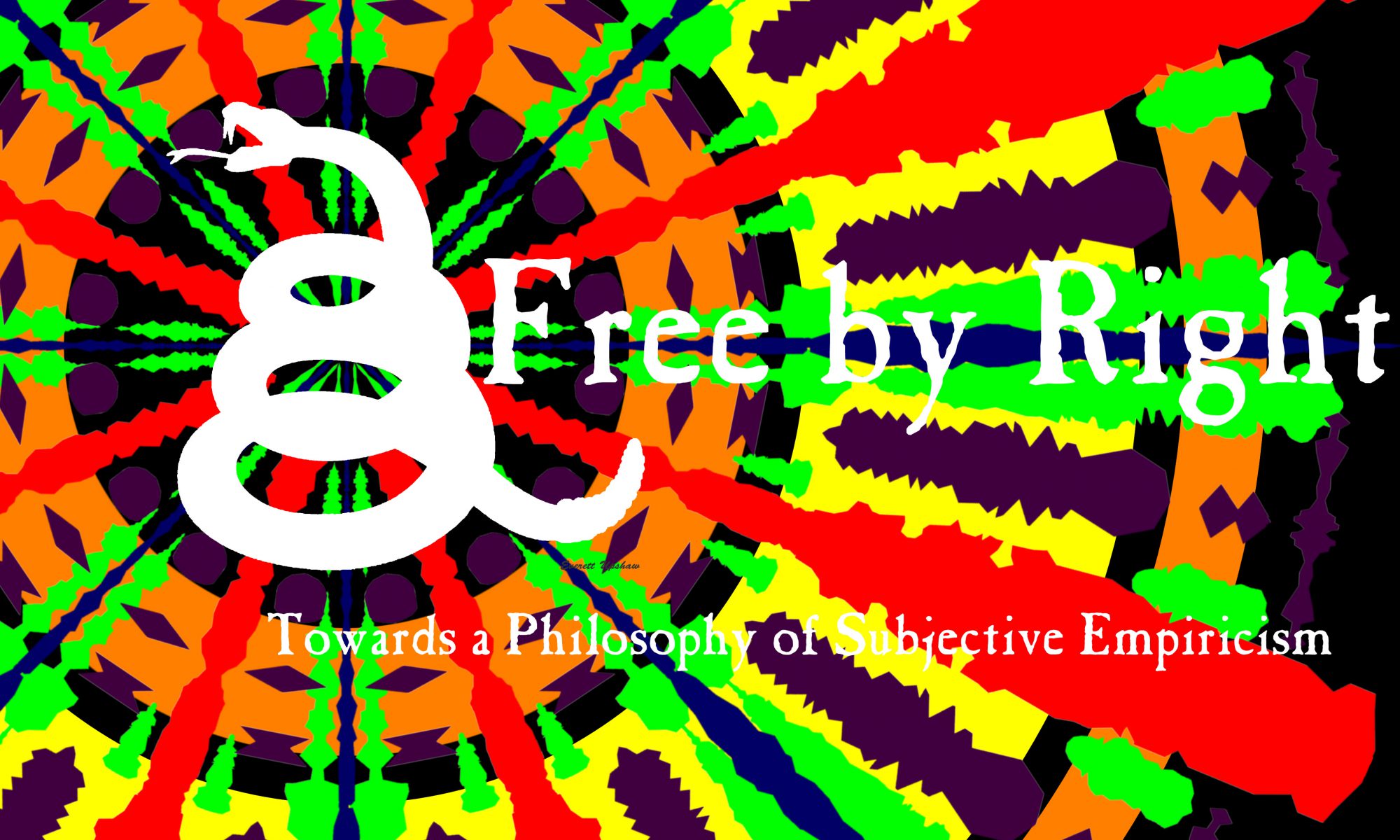Today, permit me to try taking advantage of the informality of the blogging format by taking an aside to brainstorm and offer some hypotheses for discussion. At least partly it is because I want to explain why I am now, and doubtless again will in the future, delving into methodology, arcane branches of philosophy, and even religion: Not only because I believe it to be the truth, but because the stakes are so high in all of the social and natural sciences. Perhaps most critically for this blog, given its focus on political economy, is to remember how fundamental to the quality, meaning, and moral worth of all our lives, the social order—and especially the government’s power of tyranny—are to them.
As a way of illustrating this point, and hopefully as a way of interesting and helping those of you who care passionately about the social conclusions and questions of this blog to invest yourselves in it, I want to provide some indication of where this long and winding methodological road leads, and how I can possibly be preparing to pull conclusions and arguments about what society should look like, Phoenix-like, from the epistemological ashes of humility and Original Sin.
Writing this now, the best way I can summarize what I am trying to explore and answer here is in two general questions:
What does a truly libertarian society look like?
—and its corollary—
What separates a citizen from a slave?
As a first, informal, and incomplete effort to answer these general questions, I would offer the following relatively specific propositions, which as a form of shorthand, might be summarized as rights I believe to be, or wonder if they are, encompassed by the US Declaration of Independence and the Ninth and Tenth Amendments to the US Constitution—that is, rights not specifically enumerated (or not as fully elaborated) in the first 8 Amendments. This is my starting point, not because I assume or expect anyone else to assume there is anything magical or uniquely appropriate in any formulation of rights drafted by committees and edited by legislatures, but because this formulation is the fundamental law of my country, as familiar to me as the street I live on, and as carefully considered by me as a lawyer than any other formulation. These are preliminarily arranged by topics or themes below as a starting point for analysis, but many of them could fairly be assigned to different categories.
Some fundamental moral propositions
- As individuals, we are fundamentally innocent of the wrongdoing of other individuals, and are responsible solely for our own behavior.
- But as members of society, we are automatically complicit in every act and proscription we tolerate to be taken in our name.
Some propositions to expand the individual liberties enumerated in the Bill of Rights
- Citizens have the right to bear and maintain arms sufficient to pose a credible and constant threat of revolution against tyranny, and each government must train every citizen who asks in the responsible use of all classes of legal weapons before imposing any liability based on the possession, use, or commission of specific acts with any class of weaponry.
Some propositions to restore the fundamental protections of the jury and the common law
- No one shall be convicted of any crime within the US without proof of actual harm to another person’s life, liberty, or property [or in the case of treason, to the state] resulting proximately from the defendant’s actions as a separate element in each offense charged.
- No one shall be convicted of any crime within the US without proof of actual (not imputed or constructive) mental culpability as a separate element in each offense charged.
- No one shall be convicted of any crime within the US except by a jury of at least 12 citizens, drawn from an initial pool of at least 36, with the defendant getting 3 peremptory strikes for every 2 peremptory strikes by the state after all strikes for cause have been exhausted.
- No juror shall be asked to serve on any jury panel without full replacement of any wages or salary they earn as an employee, or in the case of any stay-at-home parent or any business owner playing a critical role in the operation of their business, without sufficient compensation to provide for the appropriate care of their children or business. No juror shall be paid less than the highest of any minimum wage prescribed by law within the jurisdiction where the venireman is called, regardless of their economic or personal situation.
- No mandatory or suggested sentence or range of sentences based on circumstances of a particular violation (as opposed to the specific violation with specific elements defined by law) may be imposed by any legislative body.
- No sentence shall be imposed by any judge without ratification thereof by a jury.


